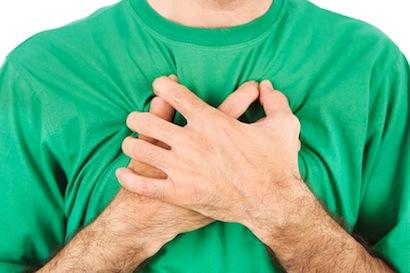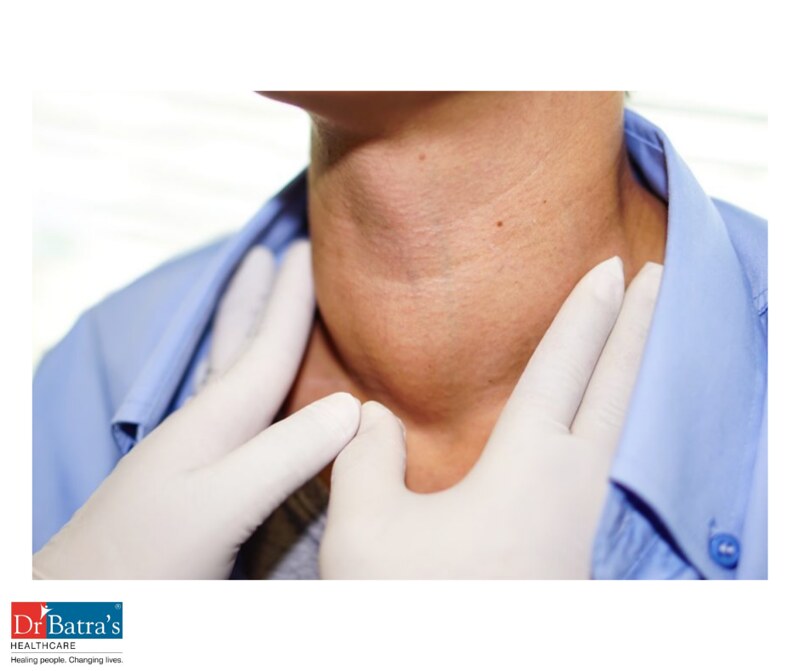SHARES

“It feels terrible. Sometimes, my heart would race so fast, fluttering and thumping as if it would skip a beat. My father passed away from a heart attack 5 years ago. I’m so scared, does it mean heart disease runs in my genes?” Kit, 51, worries if his palpitations are early signs of heart attack.
Matter of fact, heart palpitations are pretty common. When the heart palpates, you would experience feelings of heart beating fast, fluttering or pounding hard. Although it can be worrisome, they are usually harmless. Generally it is rare that heart palpitations are due to medical problem such as irregular heartbeat (arrhythmia) that require treatment.
However, if heart palpitations occur frequently or last longer than a few seconds, it could be your heart trying to tell you that something is going wrong. Particularly, if in addition, you’re having chest pain, shortness of breath, nausea, and profuse sweating, seek medical attention immediately! This may be a heart attack.
What Causes Heart Palpitations?
1. Anxiety and Stress
During stressful times, our body goes into fight-or-flight mode. The circulating stress hormones increase our heart rate and make our heart pump harder. This is to ensure sufficient blood supply to the muscles and brain to cope with stressful situations. In such cases of stress, any strong emotions such as fear, anger or anxiety can also precipitate this “fight-or-flight” body response.
A more sudden and intense form of response to stressors is called panic attack. Under such circumstances, the symptoms can mimic heart attack in which we experience difficulty in breathing, chest pain, profuse sweating and even chills on top of a crazily racing heart. You may even feel out of control or at the verge of death. These are all part of a panic attack. Get help from your doctor if you’re struggling with stress, anxiety and panic attacks.
2. Exercise
If you haven’t worked out in awhile, exerting yourself too much physically can put much pressure on your body. As a result, your body tries to compensate by making your heart pump faster and harder than it usually does. You may feel your heart flutters and pounds hard during exertion but these will slowly go away with rest. Having said so, arrhythmias can also be precipitated by exercising. If you feel as if your heart skips a beat or your heartbeat becomes irregular, make sure to seek medical attention!
3. Caffeine
Coffee, tea, chocolate, energy drink, and coke, all contain caffeine. Caffeine is a form of stimulant that can increase your heart rate. Generally, these are short term physiological effects of caffeine. No study has shown any notable or long term health problems caused by caffeine; whether in healthy people or people with heart conditions. Nonetheless for those of us with heart disease or high blood pressure, do discuss with your doctor if you experience racing and pounding heart relating to your caffeine intake.
4. Smoking
Cigarettes and many tobacco products contain nicotine. Smoking not only increases your heart rate but also raises your blood pressure. Nicotine is also the chemical that has a mildly addictive effect on our body. Furthermore, note that smoking is a strong risk factor for heart attack. It is never too late to get help with quit smoking. If you are experiencing difficulties with quitting cigarettes smoking, or having withdrawal symptoms, your doctor can help you with prescribing nicotine replacement therapy. However, it is worthwhile to be aware that you may also experience palpitations as a symptom of nicotine withdrawal.
5. Hormonal Changes
It is normal for a woman to have palpitations and hot flushes when you’re pregnant, during menopause or before your period. These are due to fluctuations in your hormonal level which have direct effects on your blood vessels and heart. Also, if you have low red blood cells count (anaemia) during pregnancy, which is fairly common, you may experience heart palpitations too.
6. Medications
Certain medications such as asthma inhaler, cough syrup, high blood pressure medications and thyroid pills can cause palpitations, as a side effect. Other medication that also cause palpitations include antibiotics, anti-fungal medication, and antipsychotic drugs. If you are unsure if your medications are causing your palpitations, talk to your doctor. However never stop or change your medications without your doctor’s advice.
7. Thyroid Problem
Having an overactive thyroid gland (hyperthyroidism) can increase your heart rate and body metabolism. You may sweat often and find it hard to tolerate heat. Also, if you have under active thyroid gland (hypothyroidism), taking too much thyroid replacement pills can also increase your heartbeat.
8. Arrhythmia
These are irregular heartbeats that can be caused by multitude of reasons such as structural heart problem, heart failure etc. If you feel that your heart is skipping a beat or beating irregularly, make sure to get help from your doctor. These conditions need to be treated to prevent complications such as stroke.
9. Alcohol and Recreational Drugs
Some people experience a fluttering and racing heartbeat when consuming alcohol. Hence, this is often called “holiday heart syndrome”, which is harmless. Similarly, recreational drugs such as amphetamines, cocaine and ecstasy can all cause palpitations but these are dangerous to the heart.
Conclusion
Heart palpitations produce a feeling of racing, fluttering or pounding heartbeat. This is common and mostly harmless. However, if you feel as if your heart skips a beat or beats irregularly, all too often, make sure to get help from your doctor! Also, expressly seek medical attention immediately if you are having shortness of breath, chest pain, nausea and profuse sweating together with palpitations! These may be warning signs of an impending heart attack.
References:
1. Robinson J. What causes heart palpitations [Internet]. WebMD LLC. 2020. (Available from: https://www.webmd.com/heart-disease/atrial-fibrillation/ss/slideshow-heart-palpitations-causes; last updated on 2019 Sept 9; last accessed on 2020 Aug 22)
2. Mayo Clinic Staff. Heart palpitations [Internet]. Mayo Foundation for Medical Education and Research (MFMER). 2020. (Available from: https://www.mayoclinic.org/diseases-conditions/heart-palpitations/symptoms-causes/syc-20373196; last updated on 2020 April 16; last accessed on 2020 Aug 22)
Find a GP/Family Doctor in Malaysia, on GetDoc
Find a GP/Family Doctor in Singapore, on GetDoc
by Chang Xian
View all articles by Chang Xian.







